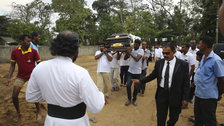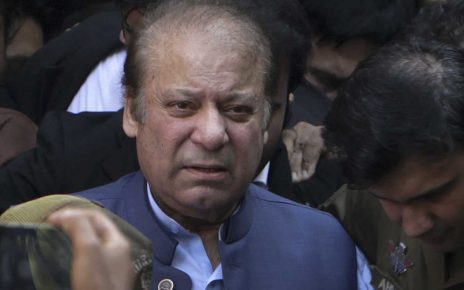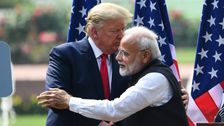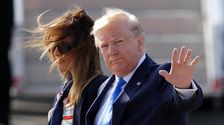

COLOMBO, Sri Lanka (AP) — Sri Lanka on Thursday lowered the death toll from the Easter suicide bombings by nearly one-third, to 253, as authorities hunted urgently for a least five more suspects and braced for the possibility of more attacks in the coming days.
In rolling back the number of dead from 359, a top Health Ministry official, Dr. Anil Jasinghe, said in a statement that the blasts had damaged some bodies beyond recognition, making accurate identification difficult.
Religious leaders, meanwhile, canceled public prayer gatherings amid warnings of more such attacks, along with retaliatory sectarian violence. In an unusually specific warning, the U.S. Embassy in Sri Lanka said places of worship could be hit by extremists this weekend.
At least 58 people have been arrested in connection with the wave of blasts at churches and luxury hotels last Sunday, according to police, including the father of two of the alleged suicide bombers — one of Sri Lanka’s wealthiest spice traders. Authorities have said those involved in the bloodbath were well-educated and well-off financially.
Sri Lankan authorities have blamed a local Muslim extremist group, National Towheed Jamaat. The Islamic State group also claimed responsibility, though officials are still investigating the extent of any involvement.
Sri Lankan Prime Minister Ranil Wickremesinghe said militants who may have explosives remain on the loose in the country and “may go out for a suicide attack.”
“We have rounded up a lot of suspects, but there are still active people on the run,” Wickremesinghe said in an interview with The Associated Press. “They may be having explosives with them, so we have to find them.”
Police appealed for information about an additional three women and two men suspected of involvement in the bombings.
The bloodshed stirred fears of more sectarian violence in Sri Lanka, a country of 23 million people, about 70% of them Buddhist, with the rest Muslims, Hindus and Christians.
“Sri Lankan authorities are reporting that additional attacks may occur targeting places of worship,” the U.S. Embassy warned on Twitter. “Avoid these areas over the weekend, starting tomorrow.”
Britain advised its citizens against traveling to the island country.
Sri Lanka’s Islamic religious affairs minister appealed to Muslims to avoid gathering for Friday prayers and instead urged them to pray at home. The noon prayers are the most important in the week for Muslims. The prime minister said that Muslims who condemned the attack could be in danger.
The All Ceylon Jamiyyathul Ulama, an association of Islamic theologians, urged women not to “hinder the security forces in their efforts” by wearing face veils.
The Rev. Niroshan Perera, a priest overseeing funerals of some of the dozens of people killed in the blast at St. Sebastian’s church in Negombo, just outside Colombo, said Catholic churches in the city all closed and canceled Mass on the government’s advice.
Perera said an official had warned him that police were still searching Negombo for two armed suspects.
“Little bit, we are nervous,” he said.
But Cardinal Malcolm Ranjith, the archbishop of Colombo, planned to lead a service on Sunday, the prime minister said.
“I’ll be talking with his eminence on the security measures,” Wickremesinghe said.
Sri Lankan leaders have acknowledged that intelligence authorities learned of the possibility of an attack weeks before. In the wake of the bombings, the country’s president ordered a shakeup of the security apparatus, ousting the defense secretary and demanding the national police chief’s resignation.
The spice dealer under arrest, Mohammad Yusuf Ibrahim, lives in a Colombo mansion that was the site of an explosion Sunday that killed three police officers. On Thursday, police continued to search the house, a white BMW outside covered in black fingerprint dust.
The prime minister described Ibrahim as a leading businessman active in politics and said he was known as “Ibrahim Hajiar,” attaching the Sri Lankan term for Muslims who have gone on religious pilgrimages to Mecca. Wickremesinghe expressed doubt about Ibrahim’s complicity in the attack.
“People like that would not have wanted their sons to blow themselves up,” the prime minister said.
In a house on the other side of a quiet, leafy street full of mansions, Buhari Mohammed Anwar, 77, a retired teacher, said his neighbor was a nice person who helped the poor.
Of the suspected suicide bombers, he said, “Their father, Ibrahim, didn’t expect this. Their father advises them every day. But they don’t listen. Children became like that, they don’t listen.”
Associated Press journalists Rishabh R. Jain and Jon Gambrell contributed to this report.



